The Top 10 Medical Schools in New Hampshire: Programs and Admissions
Discover the top 10 medical schools in New Hampshire with comprehensive programs and admissions information.
Posted July 1, 2025

Join a free event
Learn from top coaches and industry experts in live, interactive sessions you can join for free.
Table of Contents
Choosing a medical school is a significant decision that shapes your career in healthcare. New Hampshire medical schools offer various programs in medicine, nursing, physician assistant studies, and public health. Whether you’re pursuing a degree in osteopathic medicine or aiming for an MD program, these schools provide the necessary training and clinical experiences to prepare for a career in healthcare delivery.
This article covers the top 10 medical schools in New Hampshire, their admissions criteria, tuition costs, and career opportunities.
What is Medical Education in New Hampshire?
New Hampshire provides various medical education pathways for students interested in MD, DO, physician assistant, nursing, and other healthcare fields. These institutions provide exceptional training and opportunities for medical students, ensuring they are well-prepared for their future careers in healthcare. The state’s leading medical institutions focus on primary care, healthcare disparities, public health, and patient outcomes to address the growing healthcare needs of the region.
The Geisel School of Medicine at Dartmouth College is the only MD-granting medical school in New Hampshire, known for its cutting-edge research and commitment to rural and community-based healthcare. Other schools offer osteopathic medicine, physician assistant programs, and nursing degrees, providing students with hands-on experience and strong clinical training.
How to Choose a Medical School in New Hampshire: Factors to Consider
1. Program Focus
Different medical schools in New Hampshire have varying strengths. Some emphasize osteopathic medicine, which takes a holistic approach to healthcare, while others focus on primary care and clinical skills, helping you shape your medical career. Dartmouth College Geisel School of Medicine has a strong reputation in research and healthcare disparities.
If you’re looking for a program that provides extensive community engagement and clinical training, consider Franklin Pierce University’s Physician Assistant Program or Southern New Hampshire University’s nursing programs.
2. Class Size and Student Support
Medical programs vary in class size, which can impact student learning and faculty engagement. Dartmouth College Geisel School of Medicine, for example, has a low student-to-faculty ratio, allowing medical students to benefit from personalized mentorship.
3. Tuition and Financial Aid
Tuition can be a significant factor in choosing a med school. Some schools offer financial aid, scholarships, and loan forgiveness programs for students interested in serving rural or underserved communities.
| School | Estimated Tuition (Annual) | Financial Aid Options |
|---|---|---|
| Dartmouth College Geisel School of Medicine | $67,532 | Scholarships, grants, loans |
| University of New England College of Osteopathic Medicine | $61,330 | Federal and institutional aid |
| University of New Hampshire Health Programs | $15,000–$35,000 | Grants, work-study programs |
4. Clinical Rotations and Hands-on Experience
Clinical training is critical in medical education. Many schools offer early clinical exposure, community-based training, and research opportunities.
The 10 Best Medical Schools in New Hampshire
| School | Programs Offered | Focus Areas |
|---|---|---|
| Dartmouth College Geisel School of Medicine | MD, PhD, Master’s | Research, healthcare disparities, patient outcomes |
| University of New England College of Osteopathic Medicine | DO | Osteopathic medicine, primary care |
| University of New Hampshire Health and Human Services | Nursing, Public Health, PA | Healthcare delivery, community service |
| Southern New Hampshire University | RN to BSN, MSN, DNP | Nursing, healthcare leadership |
| Franklin Pierce University | Physician Assistant Studies | Clinical skills, patient-centered care |
| Rivier University | BSN, MSN, Public HealthBSN, MSN, Public Health | Nursing, public health |
| Plymouth State University | Health Sciences | Public health, exercise science |
| Keene State College | Nursing, Athletic Training | Health professions, primary care |
| Colby-Sawyer College | Health Sciences | Small class sizes, patient care |
| White Mountains Community College | Allied Health | Clinical training, medical assisting |

1. Dartmouth College: Geisel School of Medicine
Location: Hanover, New Hampshire
| Acceptance Rate | 3.3% |
|---|---|
| Application fee | $130 |
| Tuition | $70,118 |
Application Information:
- Application Deadline: October 15, 2025
- Requirements: MCAT scores, letters of recommendation, personal statement, clinical experience, research involvement
Example Courses:
- Foundations of Medicine
- Public Health and Epidemiology
- Advanced Clinical Experiences
- Healthcare Delivery in Rural Communities
The Geisel School of Medicine at Dartmouth College is New Hampshire’s only MD-granting medical school and one of the most prestigious in the country. The school offers small class sizes, cutting-edge research opportunities, and a strong focus on rural and community-based healthcare. Students complete clinical rotations in top hospitals across New England, gaining essential hands-on experience.

2. University of New England: College of Osteopathic Medicine
Location: Biddeford, Maine (Nearby, Serves New Hampshire Students)
| Acceptance Rate | 20% |
|---|---|
| Application fee | $55 |
| Tuition | $69,220 |
Application Information:
- Application Deadline: February 1, 2025
- Requirements: MCAT scores, DO-specific coursework, letters of recommendation
Example Courses:
- Osteopathic Principles and Practices
- Primary Care and Preventive Medicine
- Clinical Rotations in New England
The University of New England College of Osteopathic Medicine is one of the leading DO programs in the region, focusing on holistic patient care, primary care training, and hands-on clinical experiences. Students gain clinical skills through rotations across New England, including hospitals in New Hampshire.
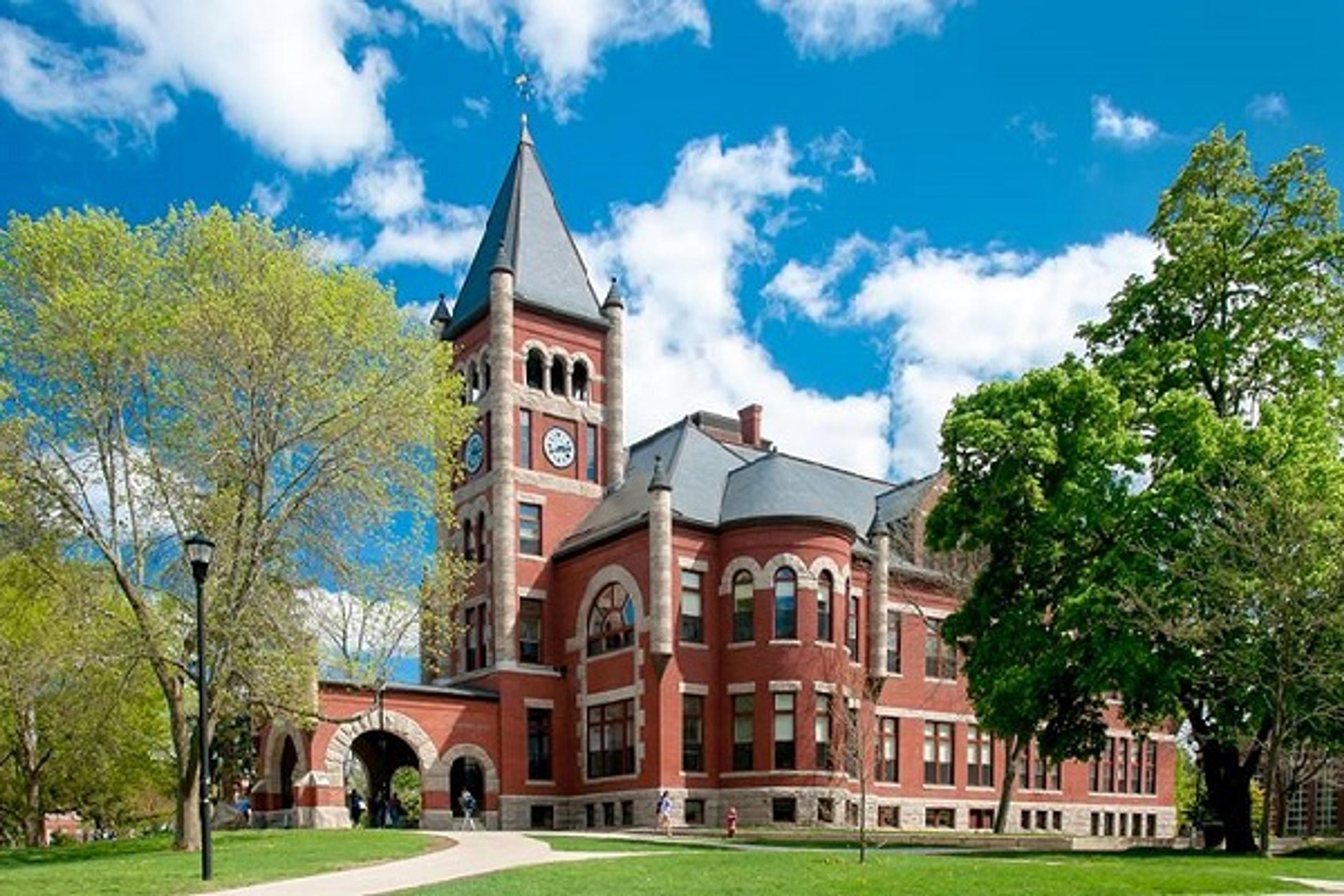
3. University of New Hampshire: College of Health and Human Services
Location: Durham, New Hampshire
| Acceptance Rate | 87% |
|---|---|
| Application fee | $50 |
| Tuition | Resident: $15,520 |
| Non-Resident: $36,170 |
Application Information:
- Application Deadline: Fall; February 1, 2025, Spring; October 15, 2025
- Requirements: Clinical experience, healthcare-related academic coursework
Example Courses:
- Nursing and Public Health
- Healthcare Policy and Leadership
- Interprofessional Education in Healthcare
The University of New Hampshire’s College of Health and Human Services offers strong nursing, occupational therapy, and social work programs designed to prepare students for careers in healthcare delivery and administration. Students benefit from hands-on experience in community health settings.
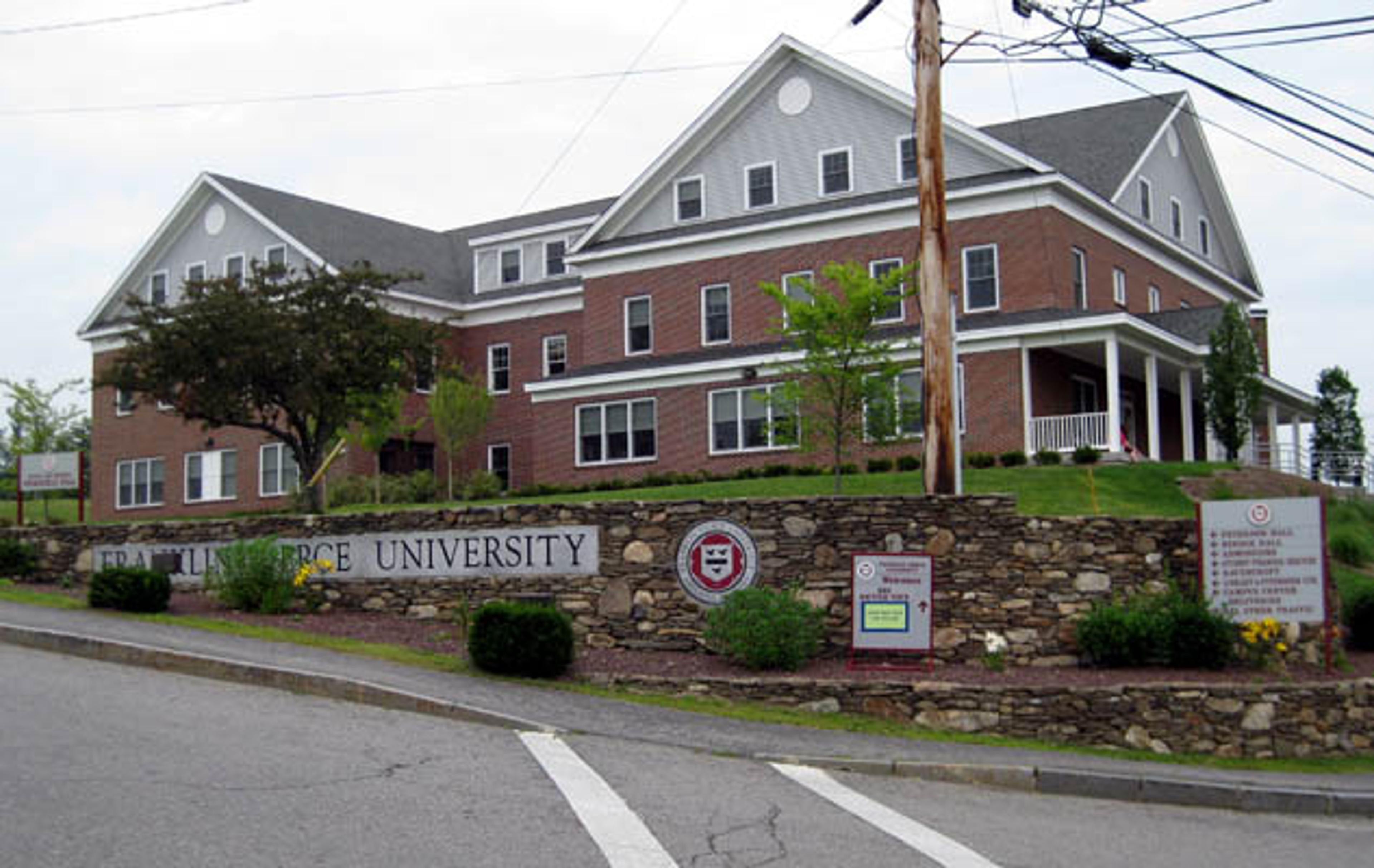
4. Franklin Pierce University: Physician Assistant Studies
Location: Rindge, New Hampshire
| Acceptance Rate | 93% |
|---|---|
| Application fee | N/A |
| Tuition | $41,836 |
Application Information:
- Application Deadline: Applications are processed on a rolling basis; there is no application deadline.
- Requirements: PA coursework, healthcare experience, GRE scores
Example Courses:
- Advanced Clinical Skills
- Complete Physician Training
- Healthcare in Underserved Areas
Franklin Pierce University’s Physician Assistant program provides a highly competitive, hands-on training approach that prepares students for clinical careers in hospitals and primary care settings. The curriculum includes clinical rotations across New England, allowing students to develop their communication skills and patient care techniques.
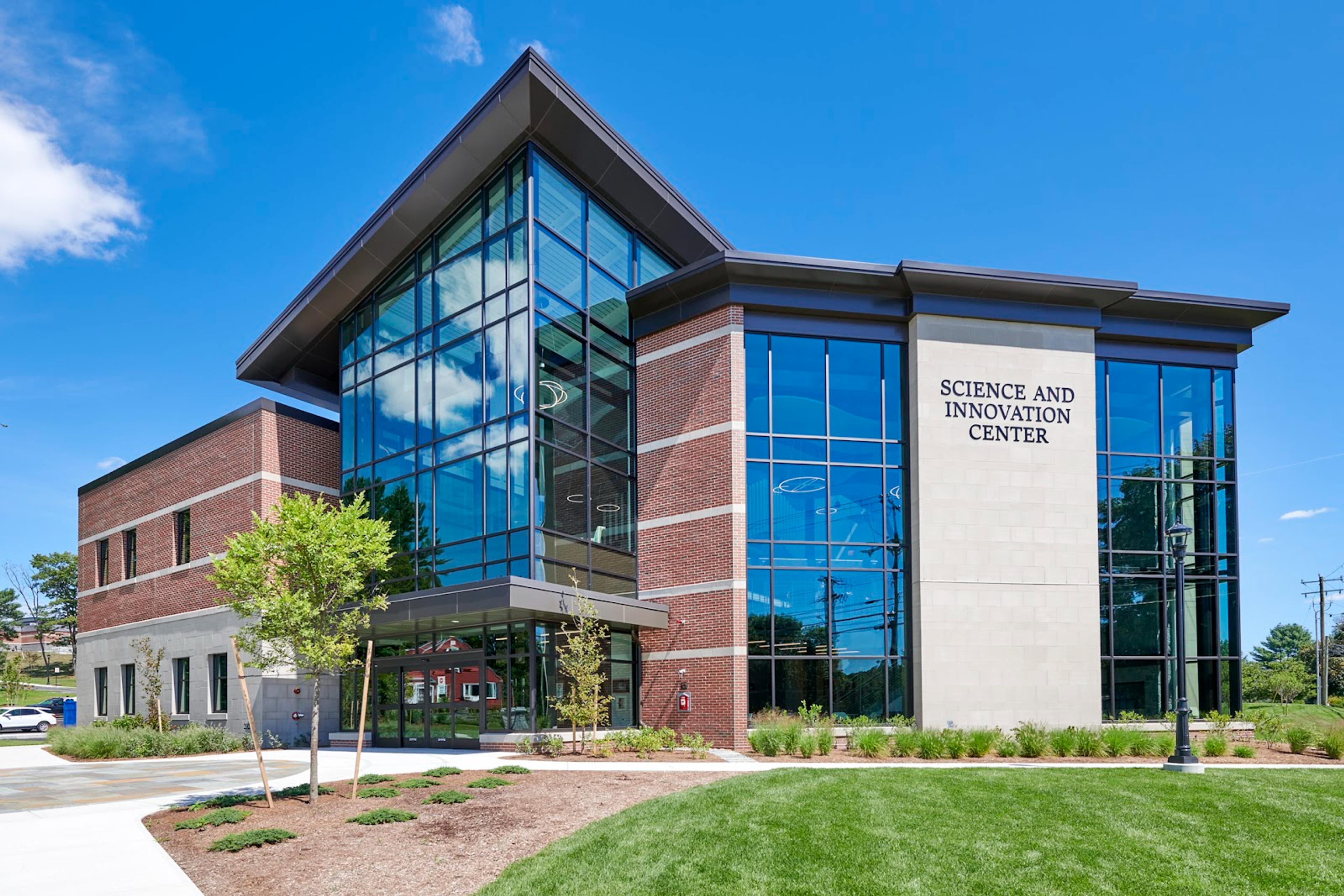
5. Rivier University: Nursing and Health Sciences
Location: Nashua, New Hampshire
| Acceptance Rate | 84.5% |
|---|---|
| Application fee | No Application Fee including the Common Application |
| Tuition | $38,078 |
Application Information:
- Application Deadline: Rolling and You may apply to Rivier at any time.
- Requirements: RN license for MSN/DNP applicants
Example Courses:
- Public Health Nursing
- Patient Outcomes and Healthcare Quality
Rivier University’s School of Nursing and Health Sciences offers BSN, MSN, and DNP programs that prepare students for leadership roles in healthcare. The program is ideal for nursing students looking to advance their careers in clinical practice, education, or healthcare administration.
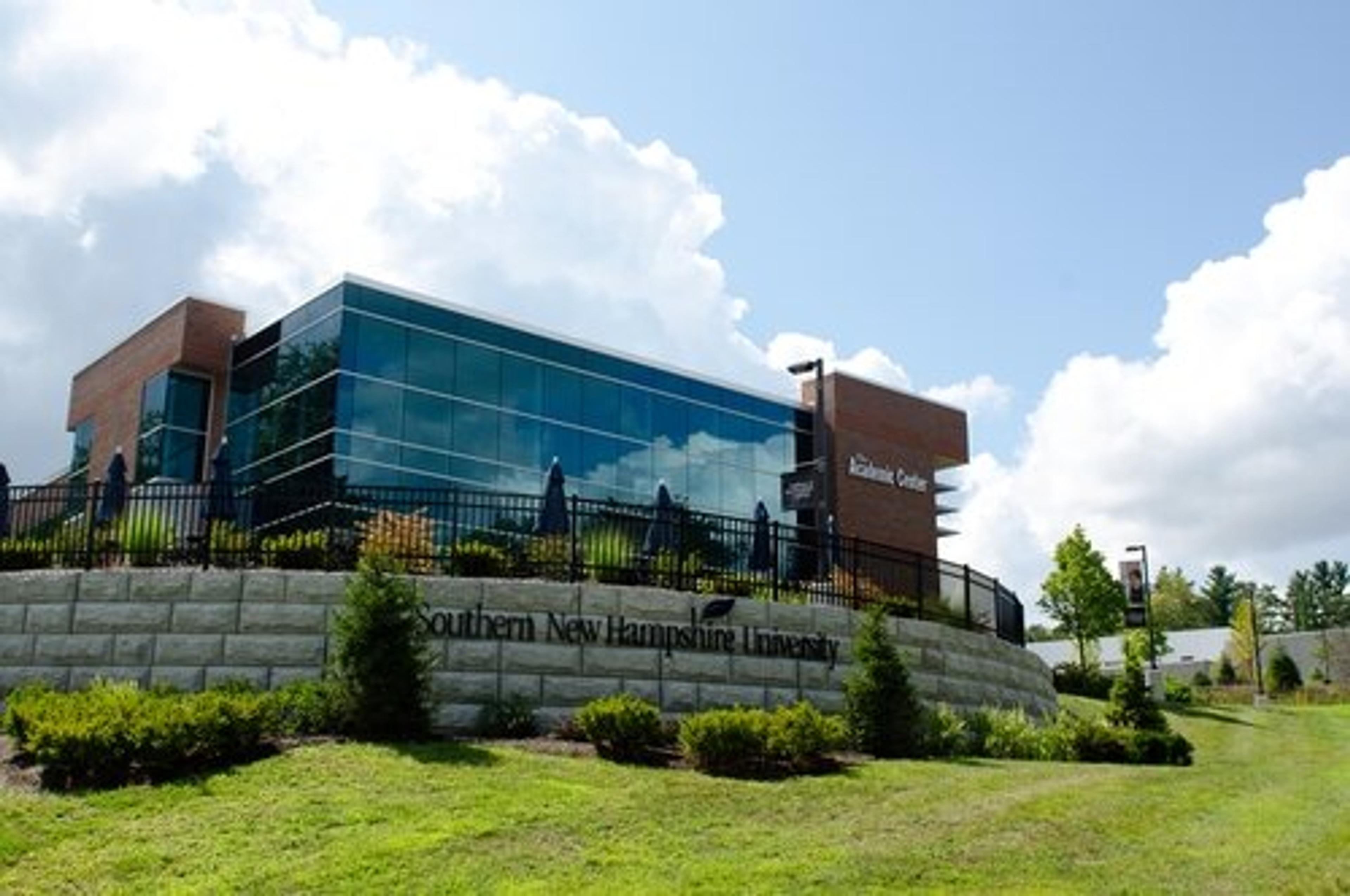
6. Southern New Hampshire University: School of Nursing and Health Professions
Location: Manchester, New Hampshire
| Acceptance Rate | 87% |
|---|---|
| Application fee | $20 |
| Tuition | $540 Per Credit |
Application Information:
- Application Deadline: Fall-August 25, 2025, Spring 2026- December 29, 2025
- Requirements: Nursing prerequisites, RN licensure for advanced programs
Example Courses:
- Advanced Nursing Practice
- Community and Public Health Nursing
Southern New Hampshire University’s nursing programs focus on flexible learning options, making them a great choice for working healthcare professionals looking to advance their careers.

7. Plymouth State University: Health Sciences Programs
Location: Plymouth, New Hampshire
| Acceptance Rate | 91% |
|---|---|
| Application fee | $50 |
| Tuition | Resident: $14,626 |
| Out-of-State: $25,566 |
Application Information:
- Application Deadline: Fall Semester - August 1, Spring Semester - Extended to December 31, Summer Semester - April 15
- Requirements: High school diploma, SAT/ACT scores (optional)
Example Courses:
- Public Health and Epidemiology
- Exercise Science and Health Promotion
Plymouth State University’s Health Sciences programs provide students with foundational healthcare knowledge, making it an excellent option for those interested in public health, sports medicine, or community health services.
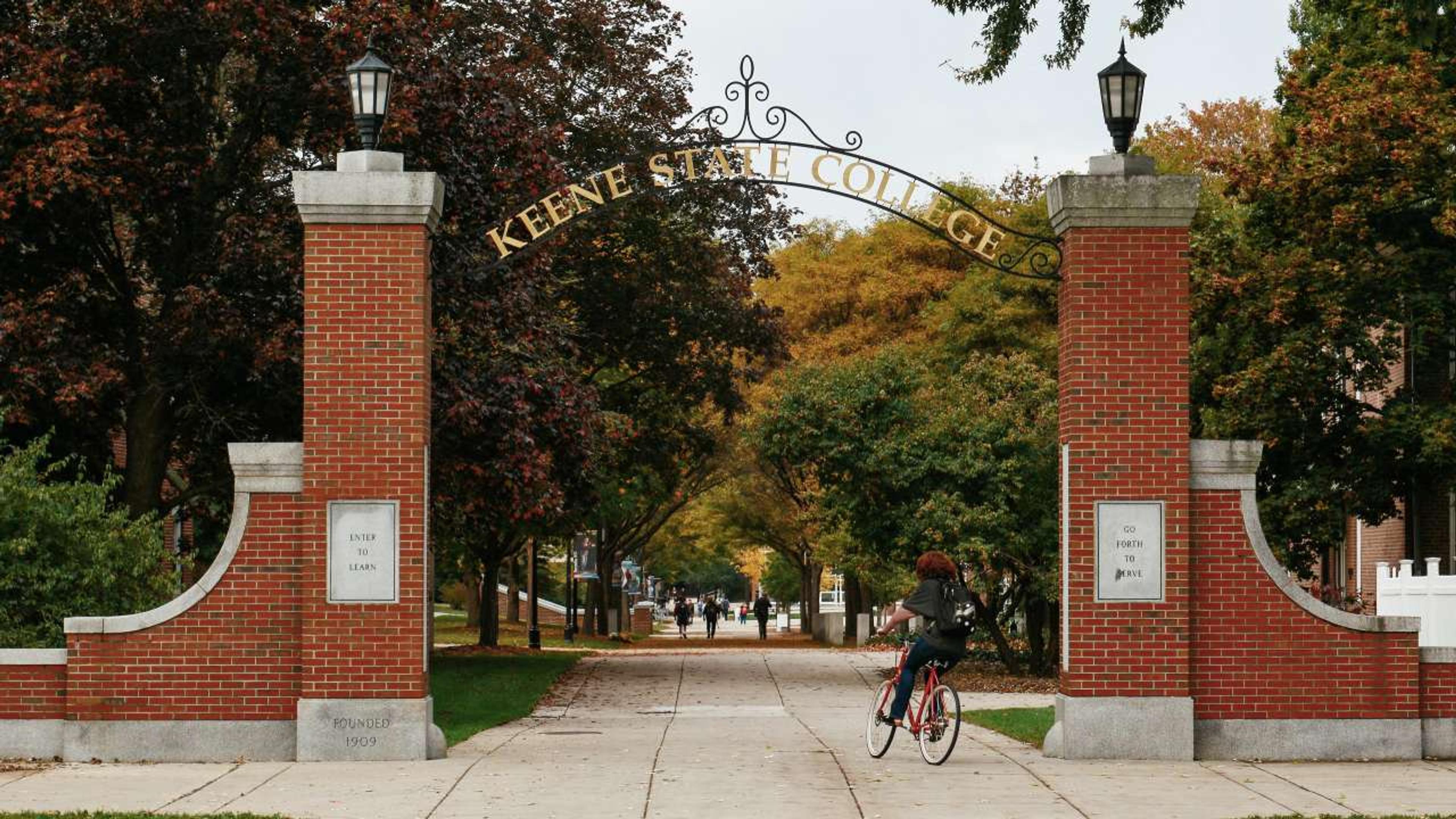
8. Keene State College: Health Science Programs
Location: Keene, New Hampshire
| Acceptance Rate | 89.5% |
|---|---|
| Application fee | $50 |
| Tuition | In-state: $11,754 |
| Out-of-State: $23,810 |
Application Information:
- Application Deadline: May 1, 2025
- Requirements: High school diploma, healthcare experience preferred
Example Courses:
- Health Science and Human Performance
- Community Health and Wellness
Keene State College provides strong programs in public health and health science, preparing students for diverse careers in healthcare and community health organizations.
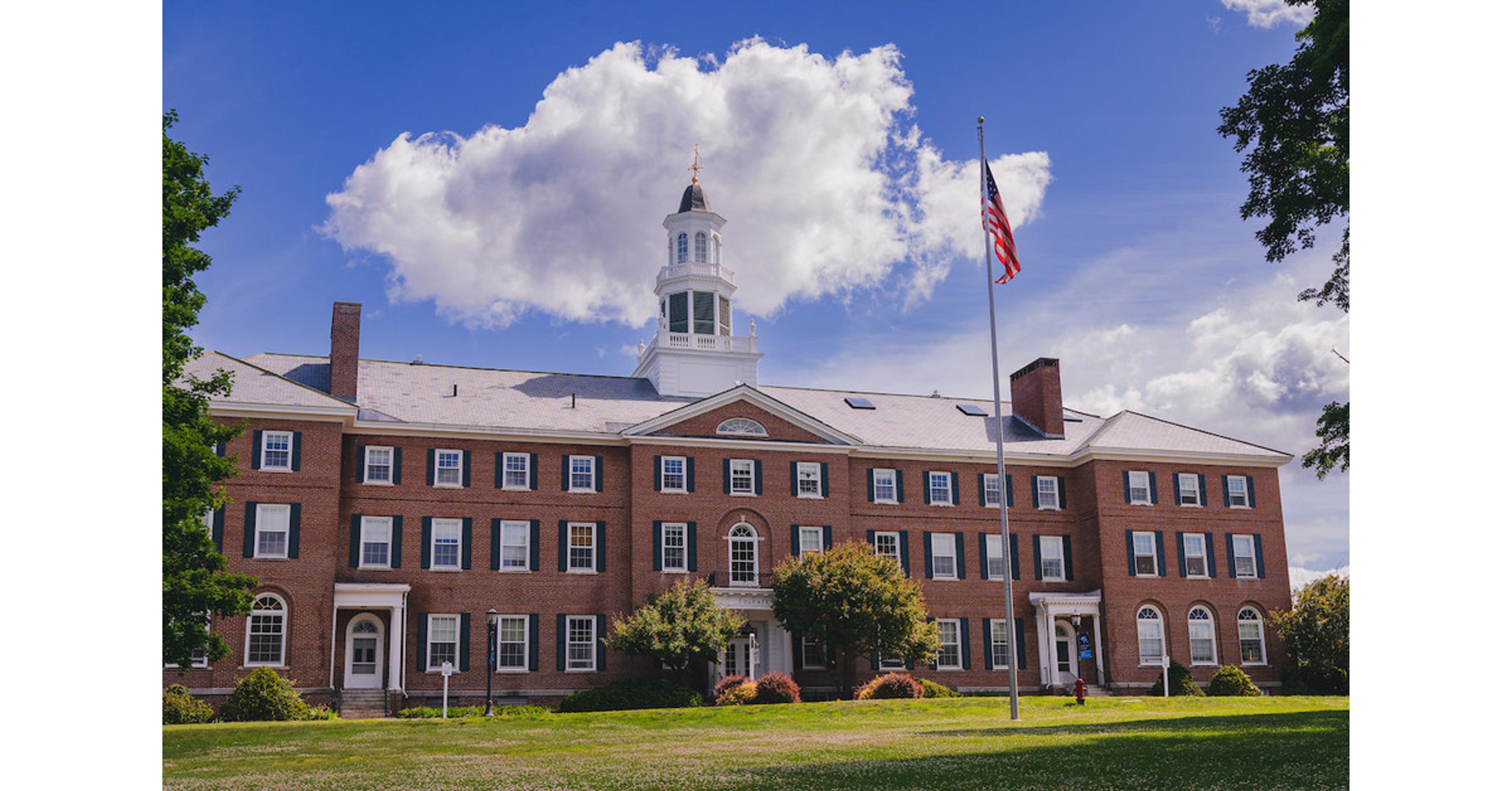
9. Colby-Sawyer College: Nursing and Health Sciences
Location: New London, New Hampshire
| Acceptance Rate | 78% |
|---|---|
| Application fee | N/A |
| Tuition | $18,500 |
Application Information:
- Application Deadline: Rolling
- Requirements: High school diploma, minimum GPA of 3.0
Example Courses:
- Healthcare Systems and Policy
- Clinical Nursing Leadership
Colby-Sawyer College offers small class sizes and personalized nursing education, making it a great choice for students who prefer a supportive learning environment.

10. White Mountains Community College: Allied Health Programs
Location: Berlin, New Hampshire
| Acceptance Rate | 99% |
|---|---|
| Application fee | N/A |
| Tuition | Residents: $215 per credit |
| Out-of-State Residents: $490 per credit |
Application Information:
- Application Deadline: March 15, 2025
- Requirements: High school diploma or GED
Example Courses:
- Medical Assisting and Patient Care
- Healthcare Ethics and Communication
White Mountains Community College offers affordable allied health programs, making it an excellent choice for students looking to start a career in healthcare quickly. Graduates often move on to further education in nursing or medical assisting.
Final Thoughts
Choosing the right medical school in New Hampshire depends on your career goals, financial situation, and preferred learning environment. Whether you are pursuing an MD, DO, nursing, or physician assistant program, each school offers unique strengths in clinical training, research, and healthcare leadership. The Geisel School of Medicine at Dartmouth College is the state's top choice for medical research and specialized training, while the University of New England College of Osteopathic Medicine provides a strong DO program with a focus on primary care. Schools like Rivier University, Franklin Pierce University, and Southern New Hampshire University offer excellent programs for nursing and physician assistant students, while Plymouth State University and White Mountains Community College provide affordable entry points into healthcare careers. No matter which institution you choose, each program is designed to prepare students for success in the medical field.
Work with a Medical School Admissions Coach
Getting into a top medical school requires strategic planning, a strong application, and a compelling personal statement. A medical school admissions coach can provide personalized guidance to help you stand out.
If you're interested in learning more about medical education and healthcare careers, these articles provide additional insights and resources:
- Medical School Acceptance Rates, GPA, and MCAT Scores of the Top 15 Programs
- The Best 50+ Free Resources for the MCAT Exam
- How to Write a Powerful Personal Statement for Medical School
- What GPA Do You Need to Get Into Medical School?
- How Long is Medical School – A Year-by-Year Breakdown
- The Different Types of Medical Careers – and Which One is Right for You
FAQs
Does New Hampshire have a medical school?
- Yes, New Hampshire has one MD-granting medical school, the Geisel School of Medicine at Dartmouth College. It is a highly ranked private medical school known for its strong research programs, clinical training, and commitment to rural and community-based healthcare. While there are no other MD or DO programs within the state, New Hampshire students often attend nearby institutions like the University of New England College of Osteopathic Medicine (DO) in Maine.
What is the easiest state to get into medical school?
- Medical school acceptance rates vary, but some states have higher in-state acceptance rates due to a preference for residents. States like Mississippi, Louisiana, and North Dakota tend to have higher acceptance rates for in-state applicants because they aim to retain physicians within the state. New Hampshire has only one medical school (Geisel), which is highly competitive, so applicants often apply to nearby medical schools in New England with more accessible admission requirements.
How competitive is Geisel School of Medicine?
- The Geisel School of Medicine at Dartmouth College is highly competitive, with an acceptance rate of around 3.2%. Successful applicants typically have an MCAT score above 515 and a GPA of around 3.8 or higher. In addition to academic performance, Geisel looks for strong clinical experience, leadership, research, and a commitment to community service.
Is a 3.7 GPA low for med school?
- A 3.7 GPA is generally considered competitive for many medical schools, but top-tier institutions like Geisel, Harvard, and Johns Hopkins often have higher average GPAs around 3.8-3.9. However, a 3.7 GPA is still strong, especially if accompanied by a high MCAT score (510+), significant clinical experience, research involvement, and strong letters of recommendation. Many DO and mid-tier MD programs accept students with GPAs in this range, particularly if other aspects of the application are exceptional.
Browse hundreds of expert coaches
Leland coaches have helped thousands of people achieve their goals. A dedicated mentor can make all the difference.


















